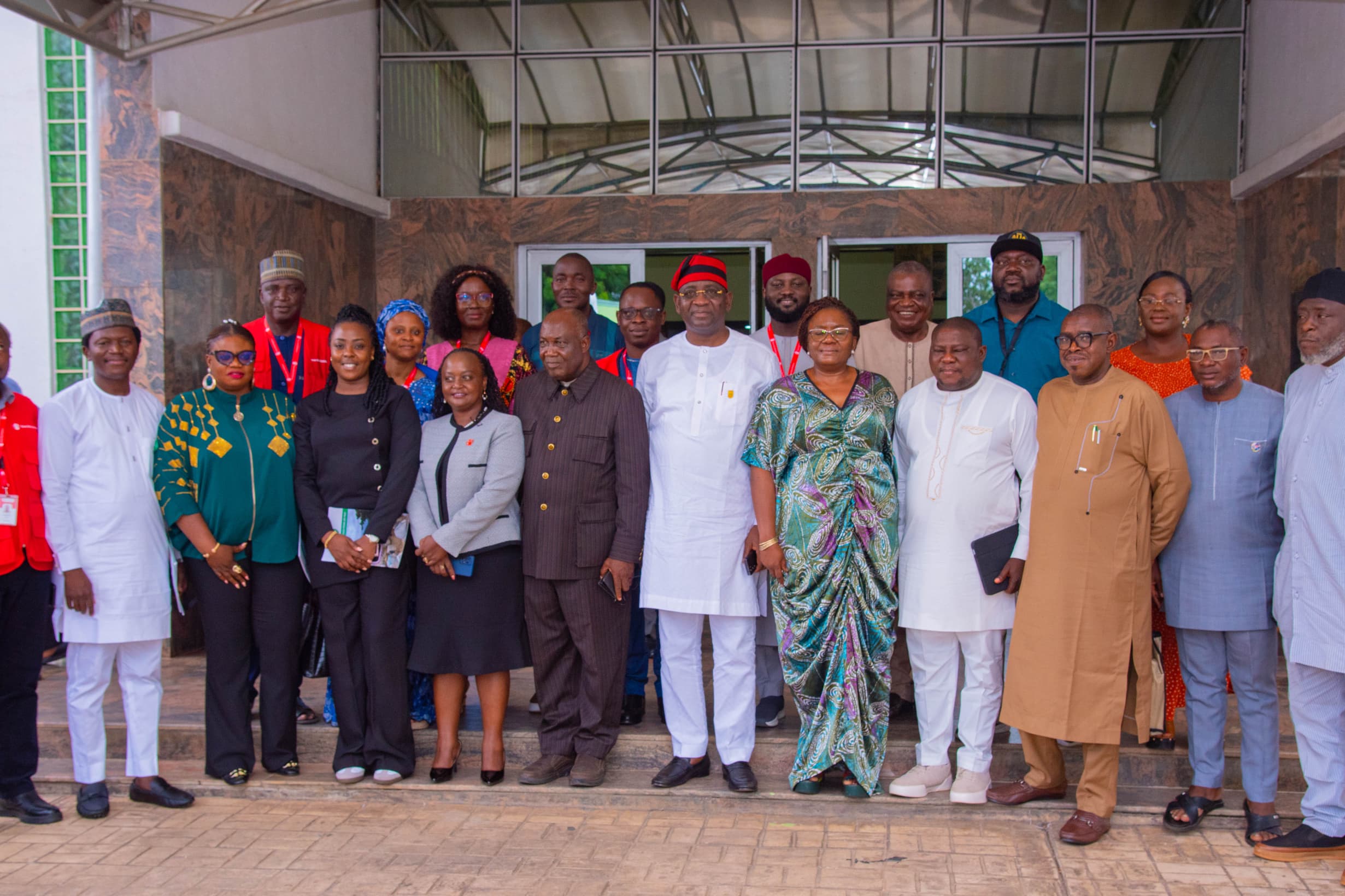
The Principal Special Assistant to the Governor on Legal Matters Affirms IDP Policy as a Social Contract and Collective Achievement
The Principal Special Assistant to the Governor on Legal Matters, Barr. Seember Wayo, has affirmed that the newly launched Benue State Policy on Internally Displaced Persons (IDPs) is not merely a document but a “social contract and a collective achievement” between government, partners, and displaced communities.
Delivering the official welcome address at the Old Banquet Hall of Government House, Makurdi, Wayo described the policy as a roadmap of hope anchored on constitutional obligations and international human rights frameworks such as the UN Guiding Principles on Internal Displacement and the Kampala Convention.
“For decades, the people of Benue have borne the brunt of violent conflicts, farmer–herder crises, natural disasters, and other displacements that have torn families apart and placed immense pressure on host communities,” she said. “The launch of this policy is not just a formal event, but a profound statement of our government’s determination to protect the dignity, rights, and future of every displaced Benue citizen.”
Her remarks set the tone for the official unveiling of the policy by the Executive Governor, His Excellency Rev. Fr. Dr. Hyacinth Iormem Alia, represented by the Deputy Governor, Barr. Dr. Sam Ode, mni. Governor Alia reaffirmed the administration’s commitment to enabling displaced families to return home, rebuild their lives, and thrive. He urged ministries, agencies, civil society, private sector actors, and community leaders to work together through the Ministry of Humanitarian Affairs, the Durable Solutions Taskforce, and the SDGs Directorate.
Commending Wayo’s leadership in coordinating the drafting and legal review process, Mrs. Jane Magi Motwa, Deputy Country Director of Save the Children International, stated: “We would like to appreciate the role of the technical working group led by Barrister Seember Wayo for all the coordination between our Office and the Government of Benue State.”
Motwa added that the policy must move “beyond words and into effective action” to restore dignity and livelihoods for thousands of displaced persons.
The Commissioner for Humanitarian Affairs and Disaster Management, Mr. Aondowase Kunde, described the launch as a turning point, while the Commissioner for Agriculture and Food Security, Dr. Benjamin Ashaver, speaking for the State Executive Council, emphasised that the implementation was a collective responsibility aimed at creating an enabling environment for recovery and stability.
Representatives of displaced persons, including Adakole Inalegwu Daniel (Benue South) and Mnena Iorhemba (Benue North East/West), expressed gratitude to the state government and partners for giving them both a voice and the tools to rebuild their lives.
The ceremony also featured goodwill messages from the National Commission for Refugees, Migrants, and Internally Displaced Persons, UN agencies, ALGON, the SDGs office, traditional rulers, and the Bureau for International Cooperation and Development.
In her closing note, Barr. Wayo reiterated that the launch marked a shift from policy intent to practical action: “It calls on all of us — government, partners, communities, and citizens — to turn compassion into coordinated action, ensuring displacement in Benue never becomes a permanent condition, but a challenge we are united in overcoming.”



